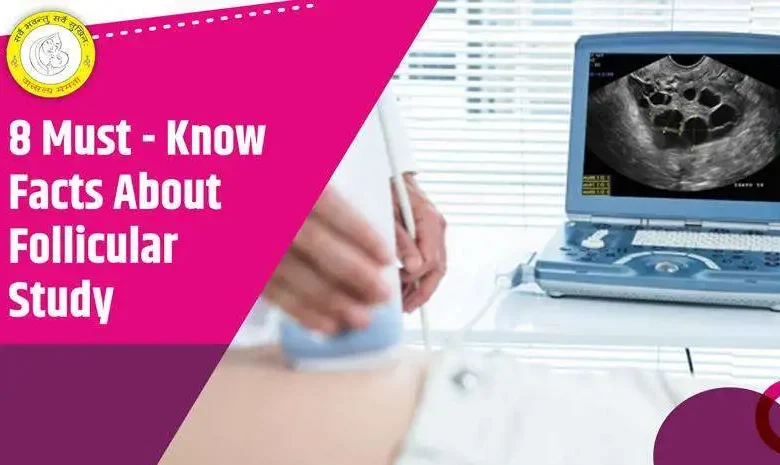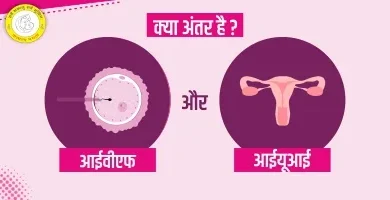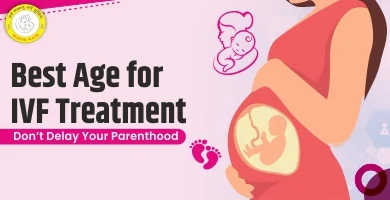8 Must-Know Facts About Follicular Study

Many women trying to conceive are not successful in their efforts. There can be different reasons for infertility in women which prevent them from becoming mothers.
In this Article
When a woman does not get pregnant even after trying for 6 months or a year, then in this situation the gynecologist can advise her to conceive with the help of techniques like IVF or IUI.
In this type of fertility treatment, follicular study is done to detect ovulation of women. If you are also thinking of getting pregnant with the help of fertility treatment,
then it is very important for you to know what follicular study is and how it helps in implantation In this blog, we are here to tell you 8 important facts about Follicular Study. From its meaning to procedure, monitoring, report evaluation and more, you will gain a comprehensive understanding of this important aspect of fertility treatment. So, let’s move ahead to know all the facts about Follicular Study.
What is a Follicular Study?
There are two ovaries in a woman’s body, one on the right side of the uterus and the other on the left. Every month an egg is released from one of the ovaries, which gets fertilized with the sperm present in the fallopian tube and the woman becomes pregnant. Follicular study is done to know when the egg was released.
Why is follicle test necessary?
According to the gynecologist, follicle test reveals the size of follicles present in the ovary. Follicle is a small sac in the ovary in which an egg is formed. It is believed that when the follicle size becomes large, then a woman may face difficulty in conceiving a child.
What’s the process?
A baseline ultrasound is usually done on day 2 or 3 of the menstrual cycle to find out how big the ovaries and follicles are at the beginning of the cycle.
1. Doctors look at the size of the follicle
The size of the egg is very small which is difficult to see with normal eyes. But the sac filled with water which contains the egg is called follicle. The doctor can see this follicle with the help of ultrasound.
Every month after the period, small follicles start forming but after some time, there are only one or two follicles whose size increases, these are called dominant follicles. When these dominant follicles break, the egg is released.
2. Ovulation is detected by the dominant follicle
By looking at these follicles, the doctor estimates when ovulation will occur. Ultrasound is done to see these follicles.
In this, ultrasound is done on the third day of the period. This helps in checking the size of the egg and detecting the presence of cysts in the ovary.
After this, one is called for ultrasound on the seventh day of the period. By the seventh day, the dominant follicle starts appearing. After this, one is called for ultrasound at the clinic every alternate day.
3. Waiting for the follicle to break
An ultrasound is required until the dominant follicle has grown to about 16 millimetres in diameter.
When the dominant follicle reaches 16 millimetres, you are referred to the clinic for daily ultrasounds. This continues until the follicle looks to be ruptured. The rupture of the follicle indicates that the egg has been liberated.
Understanding Follicular Monitoring: Why It’s Important
Doctors perform follicular monitoring to monitor the growth and development of ovarian follicles during a woman’s menstrual cycle. The primary objective is to determine the optimal time for sexual intercourse or intrauterine insemination (IUI) in couples who are trying to conceive.
Doctors use follicular monitoring to predict when ovulation is likely to occur by monitoring the size and development of the follicles and advising couples on the best time to have intercourse or undergo fertility treatments. This approach can increase the chances of conception and improve the success rate of fertility treatments.
Understanding a Normal Follicular Study Report
It means that follicles are growing and developing at the expected rate, and there are no signs of any abnormalities or irregularities. A follicular study normal report includes information about the size and number of follicles, the thickness of the endometrial lining, and the predicted time of ovulation.
Can a Follicular Study Confirm Pregnancy?
While a follicular study can provide important information about the timing of ovulation and the likelihood of conception, it cannot confirm pregnancy. Confirmation of pregnancy can only be done through a pregnancy test or other diagnostic procedures.
How Much Time is Needed for a Follicle Scan?
The time to undergo a follicle scan can vary depending on the individual and the healthcare provider. Generally, a single ultrasound session for follicular monitoring can take around 15-30 minutes to complete. However, multiple ultrasound sessions may be required during a single menstrual cycle, and the frequency and timing of these sessions may vary depending on the individual case.
Cost of Follicular Study: What to Expect
According to experts, the cost of the Follicle Study Test conducted by the doctor in case of not conceiving a child ranges from Rs. 1500 to Rs. 2,000 in private hospitals. It is absolutely free in government hospitals.
At Diwya Vatsalya Mamta IVF, we have put the cost to a minimum so that it can be affordable to all. The total cost of a follicular study may also depend on additional factors like blood tests and medication costs. It’s best to consult with a healthcare provider or fertility specialist to get a more accurate estimate of the cost based on individual circumstances.
Best Follicle Size for Pregnancy
Doctors say that the day the follicle study test detects rupture of the follicle sac, i.e., the egg is released, the test is completed on the same day. A follicle size of 18 to 25 millilitres is considered good for fertilization.
Women who are unable to conceive should get this test done. It shows whether eggs are being produced from the follicles or not and what is their size. This helps a lot.
Conclusion
I hope this guide has helped you to know all the essential facts about follicular studies. Please consult our IVF Specialist if you have further questions or concerns about the procedure.
FAQs
After follicular study what are the next treatments taken
Ovulation prediction: Based on the follicular study results, your doctor will predict your ovulation date.
Timing intercourse: You’ll be advised to have intercourse around the predicted ovulation time to increase chances of conception.
Fertility treatments: If natural conception doesn’t occur, your doctor may recommend fertility treatments like Intrauterine Insemination (IUI) or In Vitro Fertilization (IVF) based on the study findings.
After follicular study when to take pregnancy test
Typically, a pregnancy test is taken about 14 days after ovulation, which is determined by the follicular study.
However, it’s best to follow your doctor’s specific advice as it can vary based on individual cases.
Normal follicular study report on 12th day
A normal follicular study report on the 12th day would show follicle growth and development, indicating regular ovulation.
The specific details, like follicle size and endometrial thickness, would be interpreted by your doctor.
How many times follicular study is done
The number of follicular studies depends on the individual case and treatment plan.
It’s usually done multiple times during a menstrual cycle to track follicle development.
No pregnancy after follicular study
Several factors can lead to no pregnancy despite a normal follicular study.
These include male infertility, uterine factors, or unexplained infertility.
Further evaluation and potential treatments may be necessary.
Normal follicular study report on 10th day
Similar to the 12th day, a normal report on the 10th day indicates healthy follicle growth.
The specific details would be interpreted by your doctor.
Normal follicular study report on 15th day
A normal report on the 15th day usually indicates that ovulation has likely occurred.
The exact timing would depend on individual variations.
Normal follicular study report on 13th day
Similar to the 12th day, a normal report on the 13th day shows continued follicle growth.
The specific details would be interpreted by your doctor.
Pregnancy normal follicular study report
A normal follicular study report doesn’t directly confirm pregnancy.
It indicates healthy ovulation, which is a necessary condition for pregnancy but not a guarantee.
A pregnancy test is required to confirm pregnancy.
In follicular study can we confirm pregnancy
No, a follicular study cannot confirm pregnancy.
It assesses ovulation, which is a precursor to pregnancy, but it doesn’t detect a fertilized egg.



